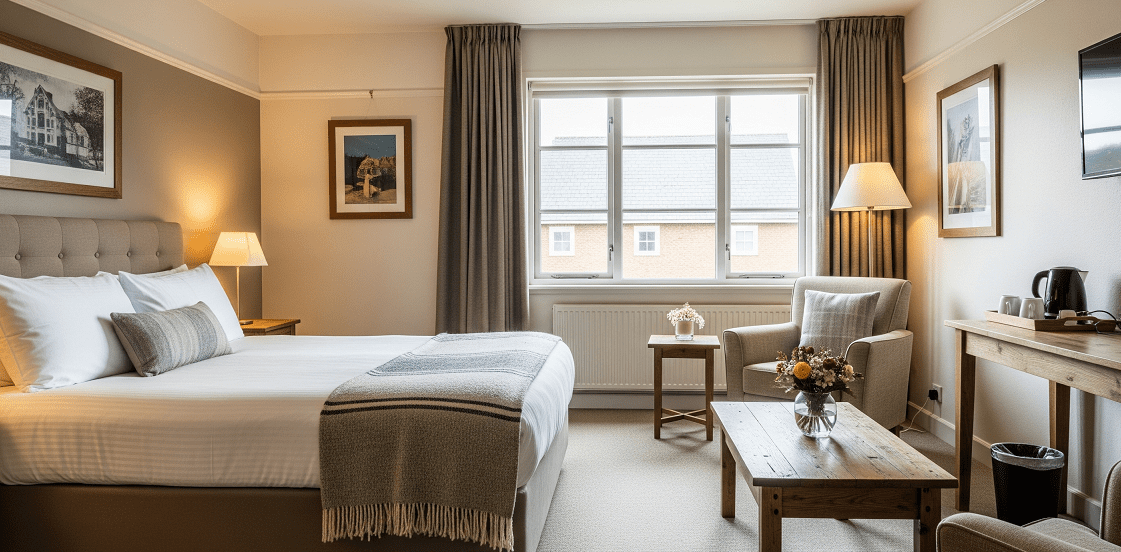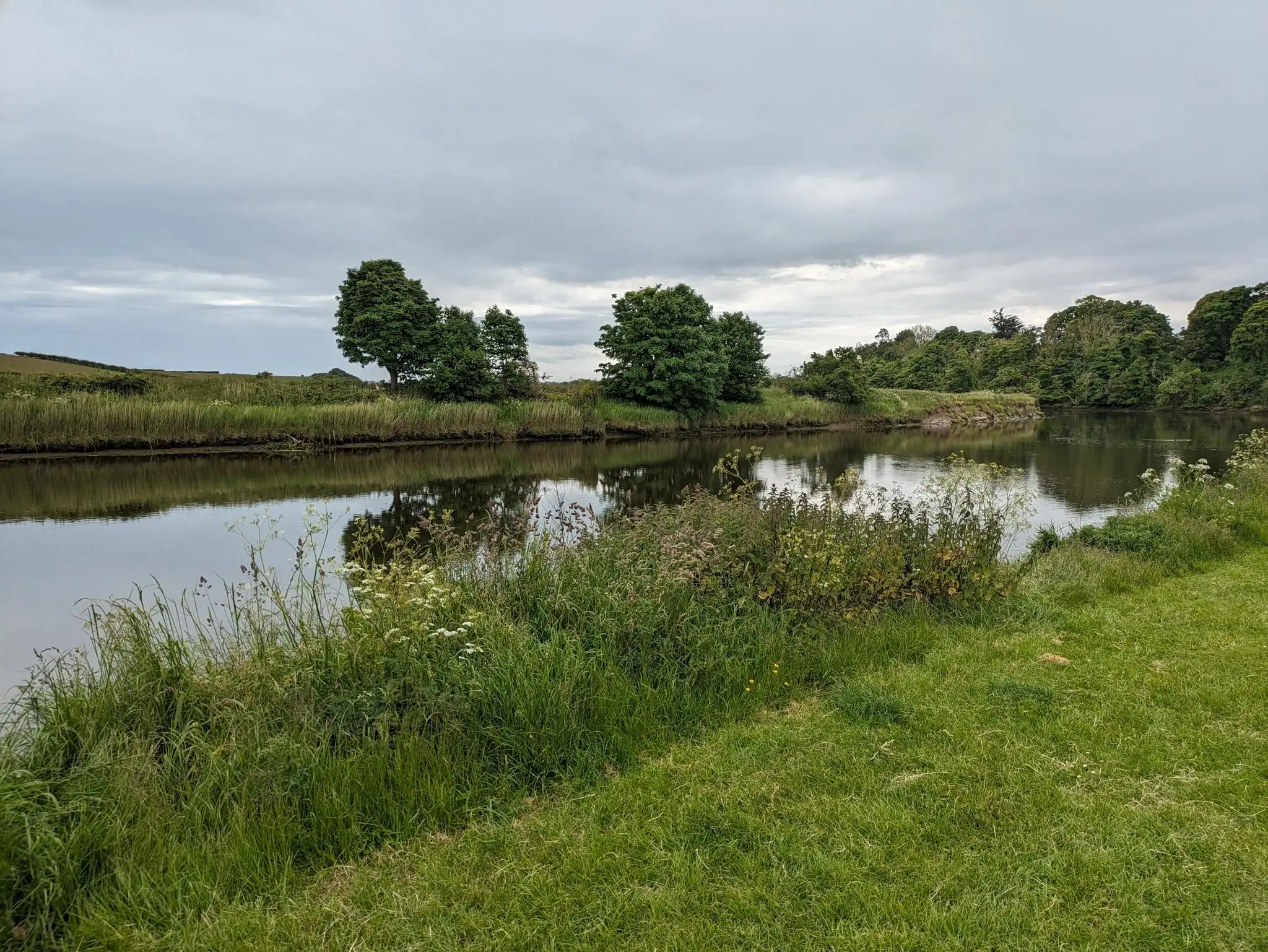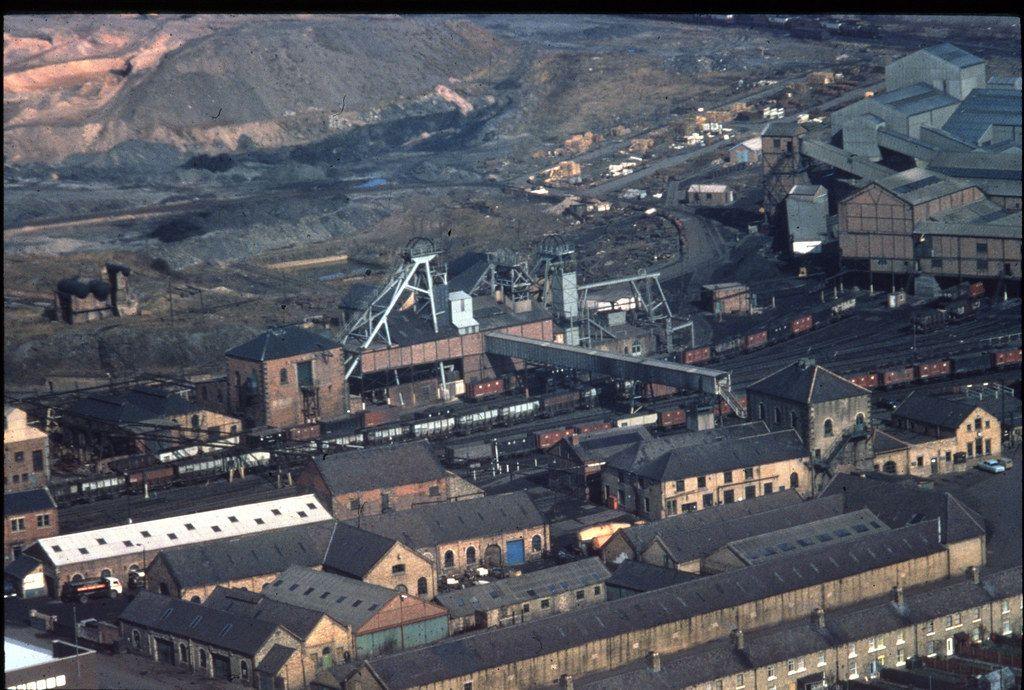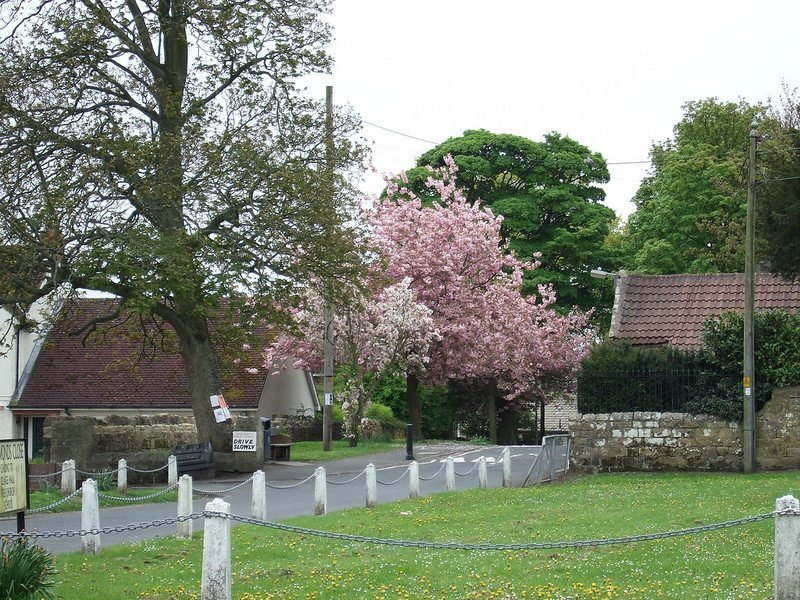Updated 10/07/2025
Key Takeaways
- Acklington is a peaceful Northumberland village known for its rural charm, historic roots, and strong sense of community.
- Main attractions include riverside walks along the River Coquet, proximity to Warkworth Castle, and remnants of RAF Acklington and local ironworks.
- Accommodation options range from luxury cottages to cosy retreats, many of which are pet-friendly and offer countryside views.
- Dining highlights feature the Railway Inn and Rigg & Furrow Brewery, with additional pubs and eateries in neighboring villages.
- Transport links are good by car, but train and bus services are limited, so advance planning is recommended.
- The village is ideal for visitors seeking nature, history, and a slower pace, with easy access to Northumberland’s coast and countryside.
Introduction to Acklington, Northumberland
Nestled in the picturesque countryside of Northumberland, Acklington is a charming village that offers a peaceful escape from the bustle of modern life. Located just a few miles inland from the North Sea coast and near the historic market town of Alnwick, Acklington is surrounded by rolling farmland, wooded areas, and scenic views that highlight the natural beauty of northeast England.
With its roots in agriculture and a history that dates back centuries, Acklington retains a strong sense of rural heritage. The village is perhaps best known today for its proximity to HMP Northumberland, a large prison facility, but it remains a quiet and friendly community with a distinct local character. Traditional stone cottages, a local pub, and access to tranquil walking trails make it a pleasant place for both residents and visitors seeking a slower pace.
Acklington also benefits from its location near the River Coquet, offering opportunities for fishing and nature walks, and its railway station provides direct connections to the East Coast Main Line, making it an accessible base for exploring Northumberland’s rich cultural and natural attractions. Whether you're drawn by the landscape, the history, or simply the peace and quiet, Acklington offers a unique window into rural life in Northumberland.
History and Culture of Acklington, Northumberland
Acklington’s history is deeply rooted in the agricultural traditions of Northumberland. Records of the village date back to medieval times, and like many rural communities in the region, its development was shaped by farming, estate work, and later, by the advent of the railway. The name is thought to derive from Old English, meaning "farmstead of Eadlac's people", reflecting its Anglo-Saxon origins.
In the 19th and early 20th centuries, Acklington grew modestly with the establishment of a railway station on what is now the East Coast Main Line. This enhanced its connectivity and importance as a local hub, especially for transporting agricultural goods. Although the station is now unmanned, it still provides useful links to larger towns and cities.
Acklington is also known for its connection to the Royal Air Force during World War II. RAF Acklington, located nearby, played a significant role as a fighter station during the Battle of Britain. Though the airfield has since been closed and redeveloped, its wartime contributions remain a point of local pride and historical interest.
Culturally, Acklington is a tight-knit village with a strong sense of community. The village hall often serves as a venue for local events and gatherings, helping to maintain a warm, communal spirit. Traditional values and a deep connection to the surrounding countryside continue to define daily life here. While the village remains small and largely residential, its rich heritage and quiet charm contribute to the enduring cultural fabric of rural Northumberland.

Things to Do in Acklington, Northumberland
Welcome to quiet charm and countryside delights. Acklington may be small, but it's packed with activities for nature lovers, history buffs, and those seeking community warmth.
Outdoor & Heritage Walks
- River Coquet footpaths: Explore gentle riverside trails maintained by local volunteers. Perfect for birdwatching or peaceful strolls.
- Local archaeology: Walk past remnants of Bronze Age burials, Iron Age settlements, and WWII pillboxes and gun sites.
- Cycling routes: Pick up the Coast‑and‑Castle cycle trail nearby, looping around Warkworth Castle and Alnmouth.
Nearby Castles & Historic Sites
- Warkworth Castle: Less than 3 miles away, this 12th-century fortress towers over the River Coquet, ideal for a day trip.
- Guyzance Bridge & Mortuary Church ruins: Quaint scenic spots along the river tracks, great for photography and quiet reflection.
Local Breweries & Eateries
- Rigg & Furrow Brewery: A farmhouse brewery in Acklington Park Farm, offering handcrafted beers and booked-on tours.
- Morwick Dairy Ice Cream: A family-run farm nearby serving homemade ice cream and offering play areas for children.
- Railway Inn: The village’s cosy pub and restaurant, just a five-minute walk from the centre, has good food and weekend entertainment.
Community & Village Life
- Acklington Village Hall hosts regular events: from seasonal fêtes like May Day or Burns Supper to clubs (Pilates, WI, dog training) and social gatherings.
- Community projects: Join footpath restoration efforts and village clean-ups, great for mingling with locals while helping maintain the countryside.
Train Spotting & Railway Heritage
- Acklington Railway Station: A charming Grade‑II-listed station from 1847. Though lightly served (just three trains daily), it’s a beautiful example of Victorian railway architecture.
Wider Exploration
- Druridge Bay Country Park: A few miles south offers beautiful beaches, lake walks, birdwatching, and dog-friendly trails.
- Plessey Woods: About 10 miles away, this country park features woodland paths, meadows, riverside strolls, and an art trail.
- Catcleugh Reservoir: For wildlife lovers, this Local Wildlife Site, teeming with otters, red squirrels, and moorland birds, makes a nice day out.
Summary
Acklington offers a peaceful rural hub with:
| Feature | Highlights |
|---|---|
| Heritage | Bronze‑/Iron‑Age sites, WWII relics, ironworks ruins |
| Nature | Riverside walks, country parks, woodland trails |
| Local life | Vibrant community events, welcoming village hall |
| Food & Drink | Craft brewery, farm ice cream, classic pubs |
Whether you're after scenic walks, local flavour, or community events, Acklington delivers a rich slice of Northumberland life.

Accommodation & Dining in Acklington, Northumberland
Acklington may be small, but it offers a wonderful mix of rural lodging and local dining experiences perfect for those seeking tranquillity, comfort, and charm.
Accommodation Options
- Red Hen Cottage (sleeps 8, pets welcome, private hot tub) – A stylish, single‑level retreat with wood burner, spa bath, and smart TVs. Set in a peaceful garden with south-facing views. Pet-friendly and highly rated by guests.
- Fern House (luxury for up to 10) – Modern yet classic, featuring a cinema room, sunny patio, and close proximity to Druridge Bay Country Park and bike trails.
- The Mustard Pot (barn conversion, sleeps 5, dog-friendly) – Charming farmhouse conversion with wood stove, underfloor heating, and countryside vistas. Situated on Cavil Head Farm, only a short drive from Warkworth Castle.
- Cherry Tree Cottage (sleeps 4, up to 3 dogs) – Single-storey with two bedrooms, wood burners, large enclosed garden, and easy access to coast and cafés in Amble & Warkworth.
- Dove Cottage, Stable Cottage, and Swallows Cottage – Cosy, ground-floor properties ideal for couples or small families; each offers comfortable living, woodburners, en-suite facilities, and proximity to the pub.
Dining & Local Pubs
- The Railway Inn – Acklington's local pub and restaurant. Highly rated, known for hearty pub meals and real ales in a warm, village‑pub atmosphere.
- Rigg & Furrow Brewery – Located nearby at Acklington Park Farm, offering farmhouse‑brewed ales, seasonal events, and casual grub on weekends.
- Nearby pubs (a short drive away):
- Trap Inn (Broomhill) – traditional, dog-friendly, with en-suite rooms.
- Northumberland Arms (West Thirston) – riverside dining with rooms.
- Blue Bell Inn, Masons Arms (Amble) – friendly rustic pubs in the region.
Self-Catering & Cottage Amenities
Most cottages include well-equipped kitchens, Wi‑Fi, parking, and outdoor spaces. Many are pet-friendly and offer woodburners/log burners, ideal for cosy evenings. Afternoon sunshine and countryside views make for an idyllic stay.
Quick Guide
| Accommodation | Sleeps | Highlights |
|---|---|---|
| Red Hen Cottage | Up to 8 | Hot tub, luxury, pet-friendly |
| Fern House | Up to 10 | Cinema room, patio, near cycle routes |
| The Mustard Pot | Up to 5 | Barn conversion, wood stove, serene setting |
| Cherry Tree Cottage | Up to 4 | Large garden, enclosed, dog-friendly |
| Cottages for smaller groups | 1–4 couples | Cosy en-suites, woodburners, village vibe |
| Dining | Description |
|---|---|
| The Railway Inn | Local hub—comfort food, ales, friendly vibe |
| Rigg & Furrow Brewery | Farm-brewed ale, casual taproom meals |
| Other pubs nearby | Warm hospitality in traditional settings |
Summary
Acklington offers a range of accommodation from upscale cottages with hot tubs to cosy, woodburner-equipped retreats, all blending comfort with countryside allure. Dining is centred around the welcoming Railway Inn and nearby brewery, with additional rustic pub options just a short drive away. If you're dreaming of a peaceful Northumberland escape with home-style warmth, this charming village has all the ingredients.
Insider Tips
- Explore the Surrounding Countryside: Discover the natural beauty of Northumberland by exploring the rolling hills, woodlands, and scenic valleys.

How to Get to Acklington, Northumberland
Acklington is easily accessible despite its peaceful, rural setting, making it an ideal destination for a relaxing countryside break.
By Car
Acklington is just off the A1068, which links to the A1—the main north-south route through Northumberland. From:
- Newcastle upon Tyne: Approx. 35 miles (1 hour)
- Edinburgh: Approx. 90 miles (2.5 hours)
- Alnwick: Around 10 miles (20 minutes)
By Train
Acklington has its own railway station on the East Coast Main Line. Although it’s a request stop with limited services, it connects to:
- Newcastle (approx. 45 minutes)
- Morpeth (25 minutes)
- Alnmouth (10 minutes)
For more frequent services, you can use Alnmouth Station, just 15 minutes away by taxi or car.
By Bus
Local bus services connect nearby towns such as Amble, Warkworth, and Alnwick. Services may be limited, especially on weekends, so check timetables in advance via Traveline North East.
By Air
The nearest airport is Newcastle International Airport, approximately 30 miles away. From there, you can hire a car or take a train via Newcastle Central Station.
Acklington’s quiet location and good transport links make it an easy and rewarding place to reach, perfect for a countryside retreat or a base to explore the wider Northumberland area.
Conclusion
Acklington, Northumberland, is a hidden gem that offers the perfect blend of rural charm, historical depth, and modern comfort. Whether you're visiting to enjoy scenic walks along the River Coquet, explore nearby castles and heritage sites, or simply unwind in a cosy countryside cottage, the village provides a peaceful and welcoming atmosphere. With its well-connected railway station, traditional pub, and range of quality accommodations, Acklington serves as an ideal base for discovering the beauty of Northumberland. Whether you're a history enthusiast, a nature lover, or just in need of a relaxing getaway, Acklington promises a memorable and restful experience.

FAQs About Acklington, Northumberland
What is the history of Acklington?
Acklington, originally called "Aecceley," began as a village when an Anglo-Saxon farming family named Aeccel built their homes there. Accurate records of the parish have been kept since that time. A hamlet within the parish, Guyzance, has existed since around 1242. The area has a long history of human occupation, with archaeological remains dating from prehistoric times to World War II. It was also home to Acklington Park Ironworks, built in 1776, which featured a significant 18th-century dam, now considered one of the finest in England. Later, an RAF station operated in the area during both World Wars.
What facilities and amenities are available in Acklington?
Acklington has a Village Hall, which is a community hub for various events and activities. While Acklington itself has limited shopping facilities, the nearest larger shops, including a Co-op, Boots, stationers, and a post office, are approximately 1.5 miles away in Hadston. The village also has a train station (though with limited services) and an adjoining Railway Inn. There are local businesses like Morwick Dairy Ice Cream and Rigg & Furrow Brewery. The area is also noted for recreational facilities such as sports fields and playgrounds, and hosts community events.
What are the main attractions or things to do in and around Acklington?
Acklington is surrounded by picturesque Northumberland countryside, offering a range of walking, cycling, and running routes. Nearby attractions include the Northumberland coast with seaside towns like Amble and Warkworth (with its Norman castle). Significant historical sites within the parish include the ruins of a medieval priory at Brainshaugh, the impressive horseshoe-shaped dam of the former ironworks, and a historic bridge and viaduct over the River Coquet. The village itself features the quaint parish church and Acklington Tower. The broader Northumberland area offers attractions such as Alnwick Garden and Castle, Druridge Bay, Northumberland National Park, and various other historical sites and natural beauty spots.
What is the population of Acklington?
According to the 2021 Census, the population of Acklington parish was 563 people. In the 2011 census, it had a population of 544 living in 277 households.
Is Acklington well-connected by public transport (trains/buses)?
Acklington has a railway station on the East Coast Main Line, serving the village. However, train services are very limited, with typically only three trains per day: two southbound to Newcastle (one in the morning and one in the evening) and one northbound to Chathill (in the evening). The station is unstaffed and has basic amenities. Information on local bus services would require a specific search for bus routes serving Acklington.
Are there schools in Acklington or nearby for children?
There is no primary school within Acklington village itself. However, there are numerous primary and first schools in nearby towns and villages in Northumberland, such as Amble Links Primary School, Broomhill Primary School, and Ellington Primary School, which would serve children from Acklington. For secondary education, James Calvert Spence College in Amble is a nearby option.
What is it like to live in Acklington?
Living in Acklington offers a peaceful village lifestyle surrounded by picturesque Northumberland countryside. It's described as a "hidden gem" and a previous winner of "Northumberland Village of the Year." The village provides a strong sense of community with various local events. It's well-located for outdoor activities like walking and cycling, and is only a ten-minute drive from the coast and towns like Amble and Warkworth, which offer more services, shops, and eateries. The village has a mix of traditional and newer housing developments, designed to blend with the natural landscape and historical elements.
What notable historical sites or archaeological remains are in the Acklington parish?
Acklington parish is rich in archaeological remains, covering periods from prehistory to World War II.
Prehistoric: Evidence includes human bones near Barnhill (suggesting Bronze Age burials) and a prehistoric settlement at Chester House, likely dating to the Iron Age, which was occupied until the Roman period.
Medieval: The village of Guyzance has existed since 1242, and a priory for Premonstratensian nuns was founded at Brainshaugh in 1147, with chapel ruins still visible.
Industrial Era: The Acklington Park Ironworks (1776) featured a remarkable horseshoe-shaped dam, considered one of the finest 18th-century dams in England. The River Coquet also has a historic bridge at Brainshaugh and a viaduct.
Railway: Acklington Railway Station and Goods Shed (1847-9) were built in a mock-Tudor style by Benjamin Green; the station building is now a private house.
World Wars: Disused structures associated with the world wars, such as a World War II anti-aircraft artillery site built to protect RAF Acklington, are of archaeological interest.
Map
Further Reading
- John Grundy’s History of Northumberland: A lively and engaging journey through Northumberland’s rich past, as told by historian and broadcaster John Grundy. From ancient hillforts to grand castles, this book brings the county’s landscapes, people, and stories vividly to life.
- Northumberland - Strange But True: An alternative history of Northumberland, this richly illustrated book uncovers the county’s quirkiest people, places, and traditions. From eccentric inventors and noble families to curious customs and mysterious landmarks, Robert Woodhouse shares fascinating tales that bring Northumberland’s hidden stories to life.
- A Walkers Guide to the History of Northumberland: Explore over 10,000 years of Northumberland’s rich history through 31 scenic walks. This guide combines the county’s stunning landscapes from wild uplands to dramatic coasts, with the stories of those who shaped its past, from ancient peoples to Romans, warlords, and industrialists. Perfect for walkers with a passion for history.
- RAF Acklington - Guardian of the Northern Skies: Opening in 1938 as a training base, RAF Acklington became a key fighter station during WWII, defending Newcastle and the industrial north-east. It's Spitfires and Hurricanes faced early German raids, and later, night fighter squadrons took over as attacks shifted to the dark. Remaining active after the war, the airfield continued in service until the early 1970s.
- Disclosure: As an Amazon Associate, I earn from qualifying purchases. This means that if you click on a link and make a purchase, I may receive a small commission at no additional cost to you.



